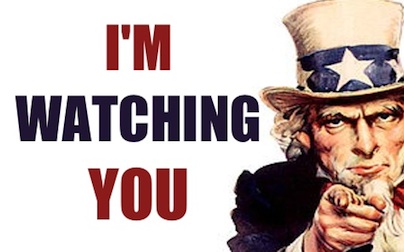Friday, April 27, 2012
Thursday, April 26, 2012
Governor Haslam OKs Dress Code for Pants In Schools Which Already Have Dress Codes For Pants
Our state will now police your pants - and pretty much all clothes worn by students in Tennessee thanks to a new law our governor has signed.
See, even though every school in the state has dress code policies, now the state is ordering them to have - you guessed it - dress code policies.
Our ever-watchful state officials this year have decided junk science must be allowed in schools and that hand-holding leads to making babies, not to mention that boys and girls making eye contact might need to be banned as well.
See, even though every school in the state has dress code policies, now the state is ordering them to have - you guessed it - dress code policies.
Our ever-watchful state officials this year have decided junk science must be allowed in schools and that hand-holding leads to making babies, not to mention that boys and girls making eye contact might need to be banned as well.
Monday, April 23, 2012
TN Legislators Back Sweeping Changes to Internet Privacy via CISPA Bill
In stark contrast to the widespread awareness and opposition to the recently failed PIPA and SOPA bills, awareness of the vast and fundamental changes to internet privacy created in a new bill, called CISPA, is very low.
Part of the reason for this is that this new bill is framed as a must-have tool to protect vital computer operations from attack, a tactic Tennessee's legislative coalition is pushing, as presented in this article from the Tennessean, headlined "TN Seen As Likely Cyber Target":
"Tennessee Democratic Rep. Jim Cooper and Republican Reps. Marsha Blackburn,
Chuck Fleischmann and Phil Roe have signed on to legislation that would
encourage the intelligence community and private sector to share
certain information to better protect computer networks from
cyberthreats.
"The Cyber Intelligence Sharing and Protection Act
would allow private companies and the government to share any
information “directly pertaining to a vulnerability of, or threat to,” a
computer network. Currently, the government can’t share classified
intelligence on cyberthreats with the private sector.
“Because
our Pentagon and other government agencies are attacked thousands of
times a day, we have learned ways to help American business and
individuals guard against identity theft of their customers, disruption
of electricity and water service, and other threats to daily living,” he
said."
But there is far more is at stake here, and private businesses already are further ahead when it comes to security measures, since their businesses depend of secure operations.
Opposition to the legislation and the wide range of powers it creates gets a presentation here, noting that this legislation creates several problems:
- An overly broad, almost unlimited definition of the information can be shared with government agencies. And because that info is shared “notwithstanding any law,” CISPA trumps any federal or state privacy law that currently prohibits disclosure.
- Enactment is likely to lead to expansion of the government’s role in the monitoring of private communications.
- It could shift control of government cybersecurity efforts from civilian agencies to the NSA.
- It creates a backdoor wiretap program because the information shared with the government isn’t limited to just cybersecurity, but could also be used for other purposes, such as law enforcement or by intelligence agencies.
Pages and pages of rules and regulations such as this are akin to the long and confusing paragraphs for the average Terms of Service Agreements which the average internet user encounters and OKs without really reading. Forcing private business to give their information about you to an intelligence agency may well be the norm if this bill passes - and most internet users will never even know it's happening.


